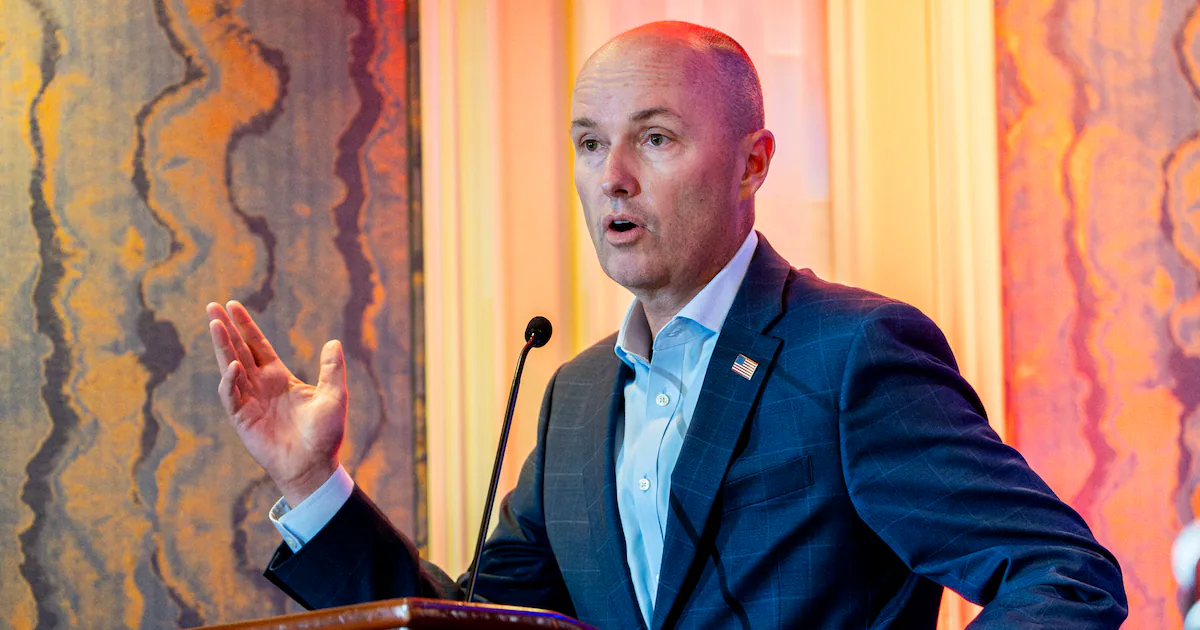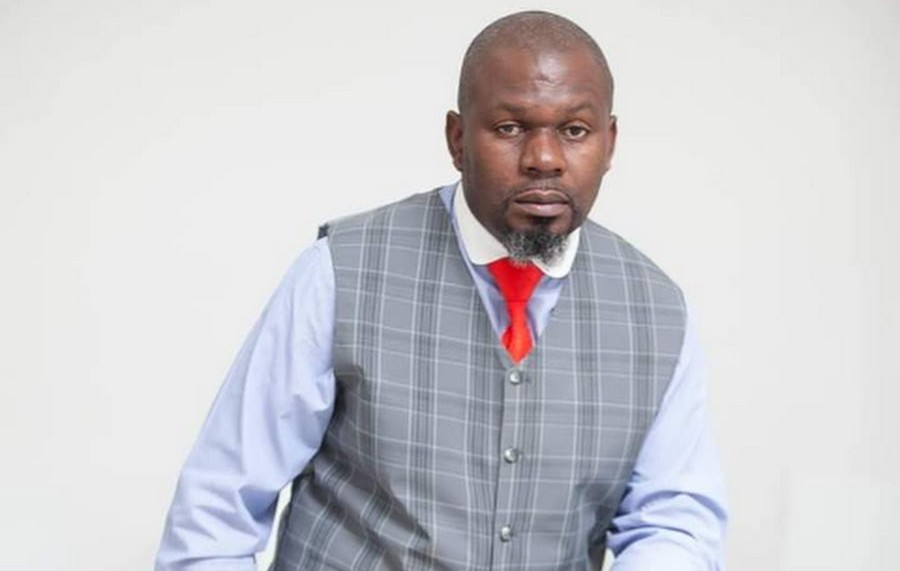
Gov. Spencer Cox said Wednesday he was looking at “the best of Utah” when he addressed the steering committee formed to advise organizers of the 2034 Winter Games at the end of their first in-person meeting.
“It’s been a rough couple of weeks for our state. Certainly there are a lot of people that didn’t know much about Utah,” the governor said, but being an Olympic host “may be the one thing that they do know.”
In remarks that Cox said were different than he planned to make, he repeated what he was told about the deadly shooting of conservative activist Charlie Kirk at Utah Valley University on Sept. 10 that put the state in the spotlight.
While at the University of Notre Dame to participate in a discussion about “Pragmatism over Polarization,” the governor said he was approached by an alumnus from New York who expressed gratitude towards Utah.
“He said, ‘You need to know that bad things are going to happen. Worse things are going to happen and the world needs Utah right now. I’m so grateful that your state was the one, because I think if it happened anywhere else, it would have been a lot worse for our country.’”
“That’s who you are,” the governor said to the community, political, business and sports leaders gathered in a small meeting room at Little America, where hundreds of U.S. Olympic and Paralympic officials are also meeting this week.
Praising the steering committee members for their efforts to help “pull off an incredible worldwide event,” Cox said they’re “the doers. Because of that, I have no worries at all about the Olympics. I know right now, I can promise you, that this will be the greatest Olympics.”
Cox said Utahns are “a bit battered. We’re a little bit bruised. But we are not broken. We are better than the worst among us and the nation needs us right now. They’re going to need us in 2034. And we’re going to show them how to do this right.”
Earlier in the 1½-hour long meeting, Salt Lake City Mayor Erin Mendenhall said the Olympics are something to feel a part of during “an emotional time in America.” The mayor said “whatever disagreements we have matter not in the face of what we’re doing here together.”
Leaders of the Organizing Committee for the 2034 Olympic and Paralympic Winter Games said the event can be a positive force.
“All of us feel the tragedy of any loss of life. It’s so hard. And it’s so difficult for our society. The Games have the power to bring people together,” Fraser Bullock, the organizing committee’s president and executive chair, told reporters after the meeting.
“We want to bring that ray of light, that hope to the world, in what we do. And in hosting the world here, we want to maximize this opportunity to do that,” said Bullock, who helped lead Utah’s first Olympics, held just months after the deadly Sept. 11, 2001 attacks on the U.S.
Brad Wilson, CEO of the 2034 Games, said “regardless of the challenges that the world is facing, our job is to focus on the value of Olympic competition, the value of hosting the world and to try to be a consistent kind of rudder … to give people something to focus on that’s positive.”
Wilson announced at the steering committee meeting there will be a celebration on Nov. 24 to mark 3,000 days to the start of the 2034 Games with Opening Ceremonies at the University of Utah’s Rice-Eccles Stadium.
He said the organizing committee, which currently has eight employees and three consultants on the payroll, will fill some nine more positions in the coming year. By Games time, Wilson said there will be 50,000 employees, volunteers and contractors.
How the state can benefit from a second Winter Games, the subject of a new report from the Kem C. Gardner Policy Institute at the University of Utah, was also discussed.
Huntsman Family Foundation CEO David Huntsman said there’s an opportunity to think beyond improving infrastructure to addressing societal needs, particularly when it comes to mental health.
Huntsman, who spoke in June at an International Olympic Committee forum in Switzerland about improving the support available to athletes around the world for their mental health, said the 2034 Games can be used as a “platform for change.”
But there’s no time to wait, he said.
“We need to be using every opportunity between now and then to be implementing those changes,” Huntsman said, to hopefully leave a legacy that has “impact on real people’s lives, beyond those who normally would be associated or participate in the Games.”



